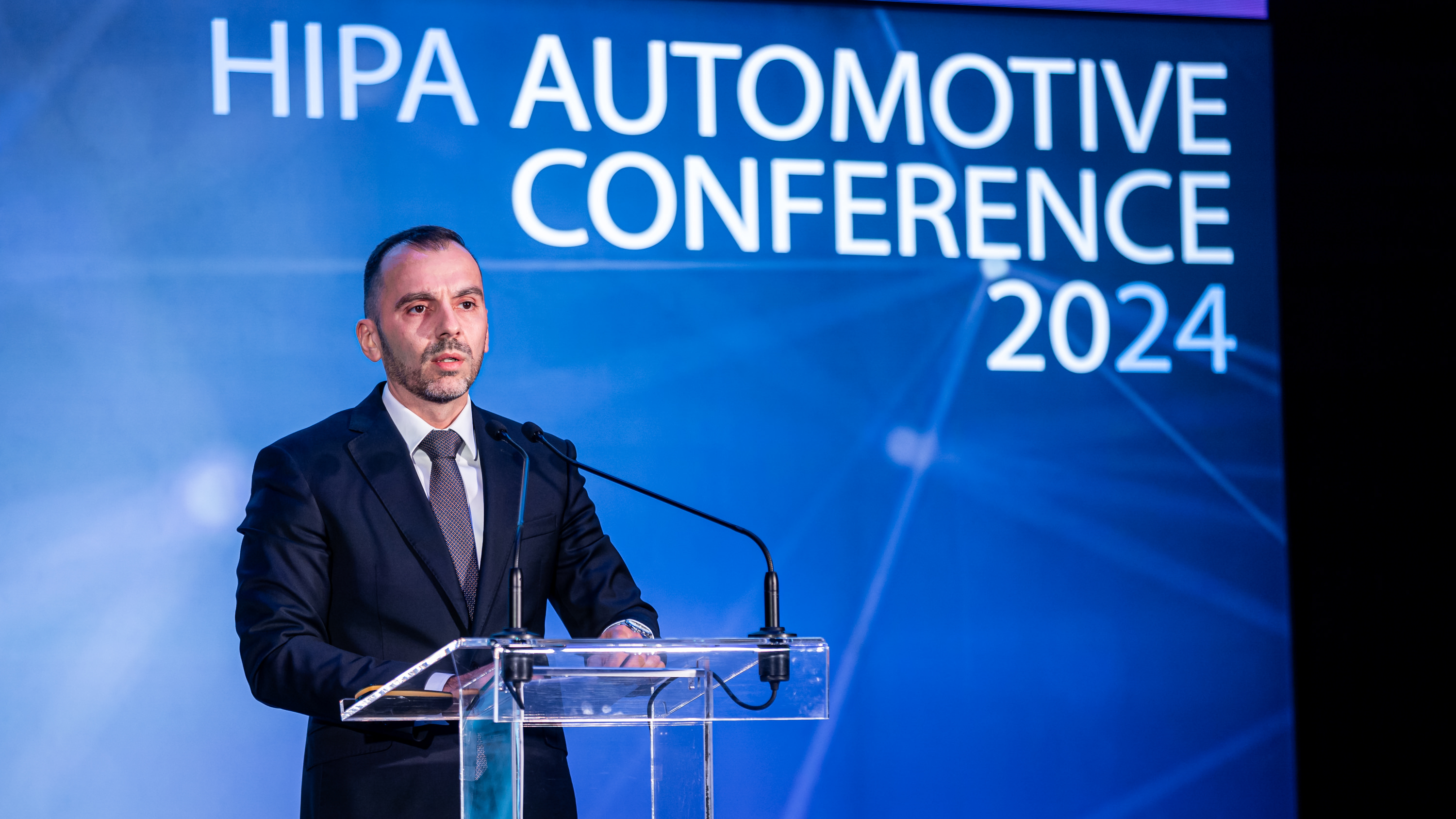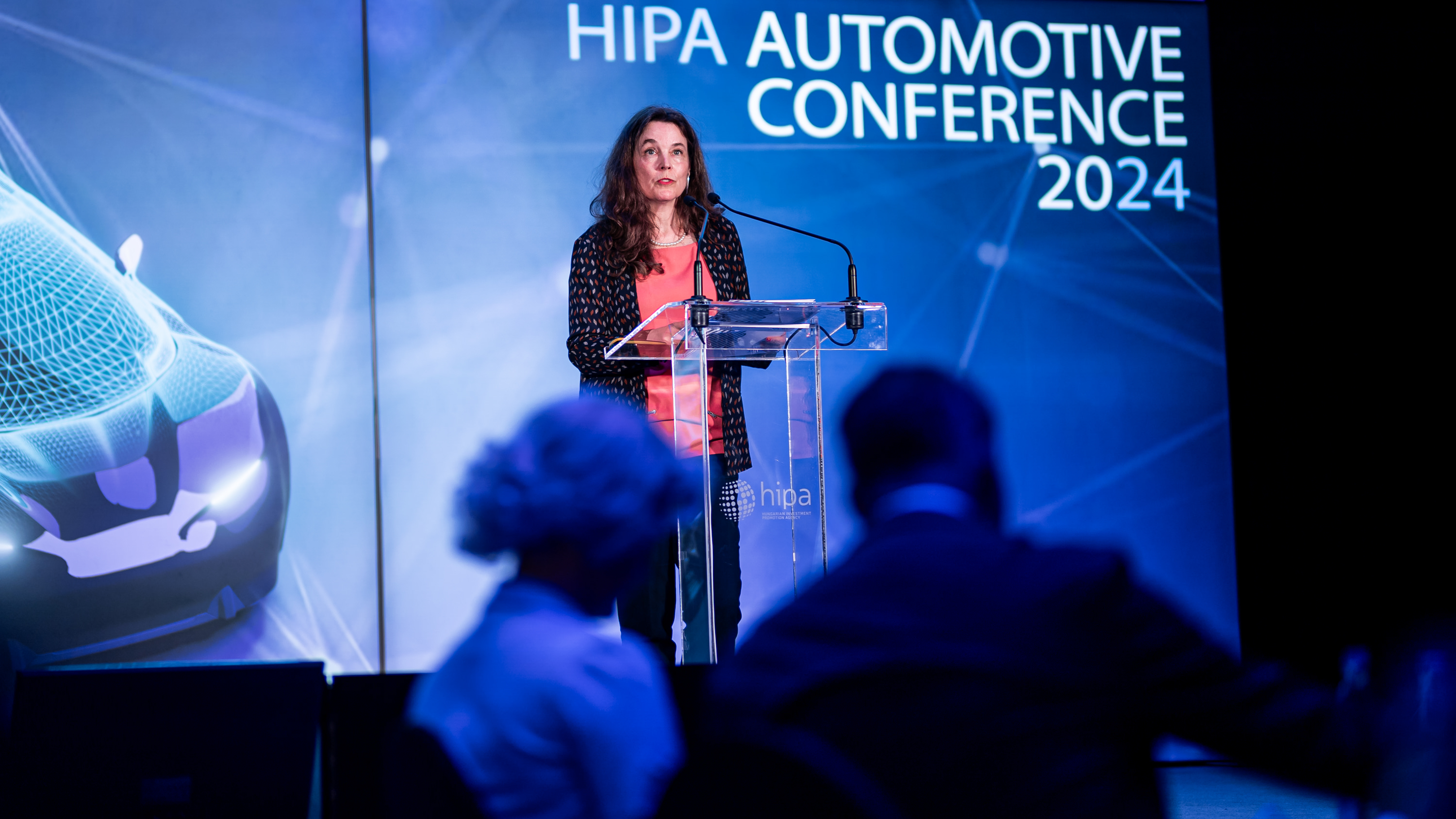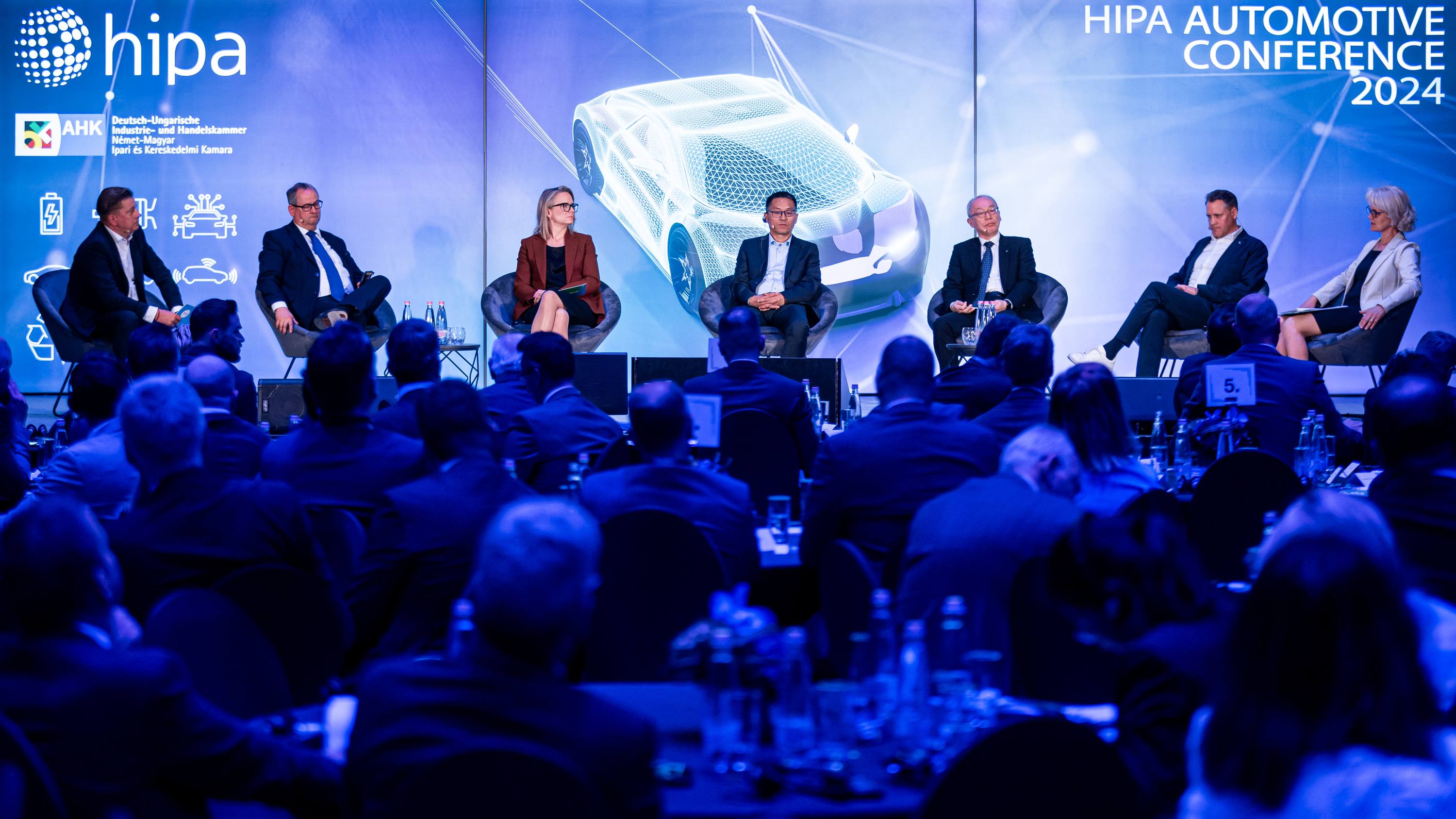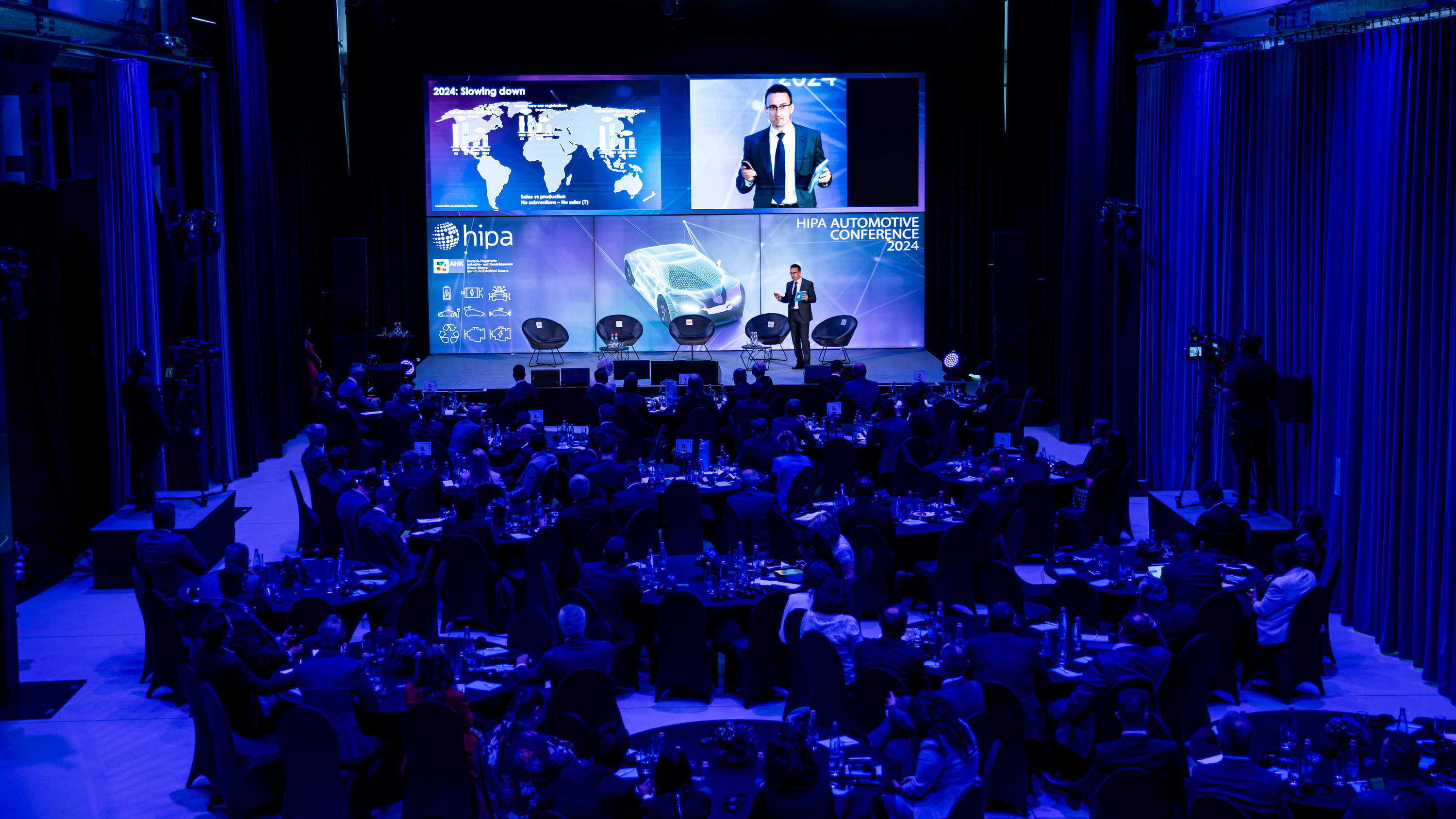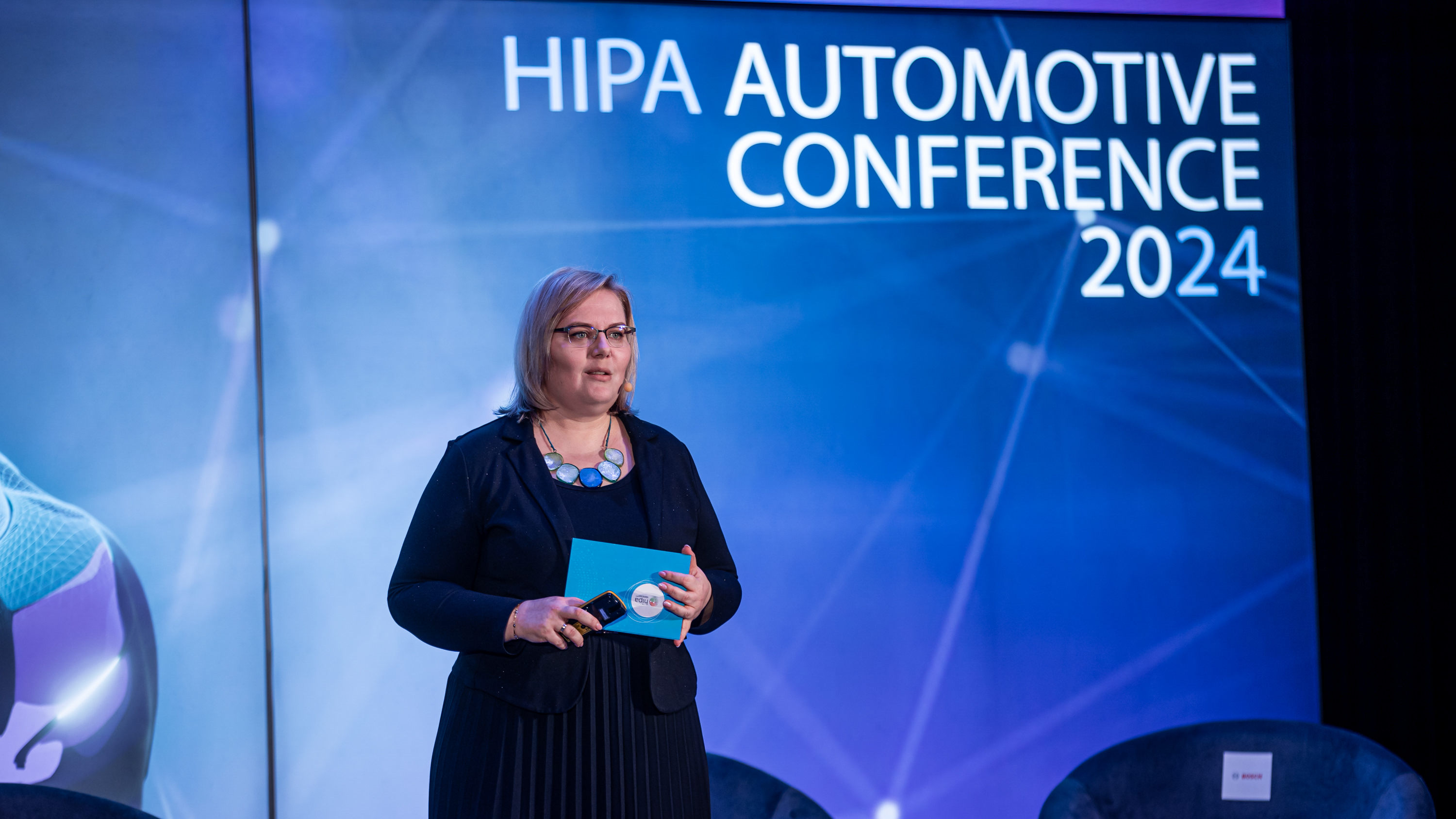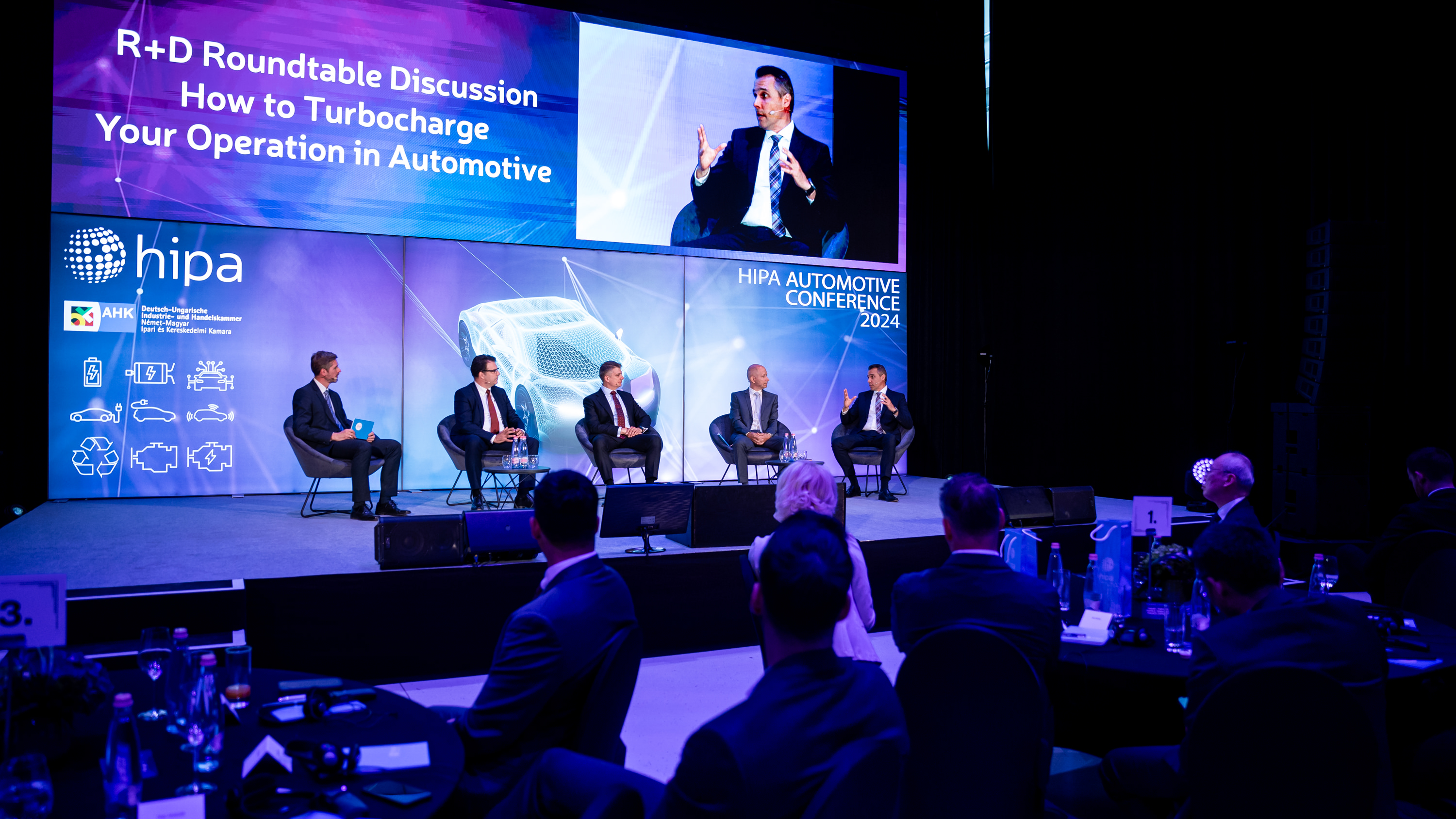
Collaboration of the Entire Local Automotive Ecosystem Needed to Prevail in the Wake of the Transition
2024. 05. 17.
Thanks to the developments of recent years, the annual production output of the domestic automotive industry could increase from the current five hundred thousand to over a million units – a capacity that only five countries in Europe are currently capable of delivering. This is partly thanks to connectivity that is a key element of the Hungarian investment promotion strategy and will make the industry more resilient in the long term. The slowdown in electric vehicle sales is temporary, and stakeholders are ready to embrace competition, as has been said at the HIPA Automotive Conference 2024 where the most renowned representatives of the sector discussed the latest trends.
According to the latest survey by the International Organisation of Motor Vehicle Manufacturers (OICA), the French, Polish and American car manufacturers reached production volumes in 2023 of around 60-70% of 2019 levels, while the Japanese and Czechs, for example, managed to go up to 85-98% of those. By contrast, Hungary's performance last year was already above pre-pandemic levels. All this would not have been possible without strong automotive hubs such as Esztergom, Szentgotthárd, Győr and Kecskemét," said István Joó, CEO of the Hungarian Investment Promotion Agency, in his opening keynote speech.
A lot to do to keep pace with Asian competition
Electrification has created a new competitive environment where Asian players have a head start, but this will only force European companies to produce better vehicles. Above all, battery range must be further extended and their production costs reduced.
István Joó pointed out.
The temporary slowdown in demand for electric vehicles is also partly due to this lack of charging infrastructure, but the experts expect a strong rebound by 2025. "The success of the automotive industry sends a very clear message to manufacturers and investors that keeping production in Hungary is an economically rational choice," concluded the HIPA CEO.
The hunt for talent continues
Sigrid de Vries, General Director, European Automobile Manufacturers' Association (ACEA) agreed with the abovementioned to-do-list, while noting that customers need more affordable cars and European automotive can only thrive if more collaboration takes place.
Top executives of Hungary-based OEMs also expressed their readiness to embrace competition which “pushes them to make better products.” The importance of training was emphasized as the sector needs to be made more attractive for the young. The existing dual education system can provide a great basis to reach that goal. “Against the backdrop of geopolitical tensions and political uncertainty due to elections all over the world it is also essential to stay flexible,” Jens Bühler, Chief Executive Officer of Mercedes-Benz Manufacturing Hungary Kft. added.
As showcased by a series of examples, the “Local for locals” principle is widely followed when it comes to sourcing material. OEMs’ overall impression is positive of local suppliers that, in turn, still need to work on taking their operation to the next level in terms of digitization, among others. On the other hand, automakers could use help in particular regarding the easing of administrative burden that manifests itself in the duplication of reporting obligations, Olívia Mesics, Managing Director of Opel Szentgotthárd by Stellantis noted.
Integration hub Hungary
Attila Vári, Partner at IFUA Horváth & Partners Ltd. stressed that Hungary can stand a chance to profit from the transition if it assumes the role of being an integration hub to host flagship players from all around the world and further develops its strong position in R&D, mainly in EV and ADAS ecosystem building.
HIPA Deputy CEO Rita Szép-Tüske said.
As she highlighted, the Agency’s extensive R&D incentive scheme offers plenty of opportunities for investors to benefit. Since 2017 HIPA has guided 33 projects in value of EUR 500 million two-thirds of which were linked to automotive.
Understanding all aspects of the business
Although the number of researchers in Hungary doubled between 2010 and 2021, nobody can sit back and relax. As Dr. István Szászi, Representative of the Bosch Group in Hungary and in the Adriatic region pointed out, the availability of talent just won't cut it, all those involved need to understand all aspects of the business to prevail.
„Business models are changing all the time which requires stakeholders to remain flexible,” he added. This includes suppliers that should embrace a whole new mindset by turning their B2B approach into B2C by incorporating client feedback into their development plans.
Dr. Zsolt Szalay, Head of Department, Budapest University of Technology and Economics concluded.
Related articles
Sector articles
On the 15th anniversary of Stadler’s Szolnok facility, the first aluminum double-decker car body produced in Jász-Nagykun-Szolnok County was unveiled. This milestone was achieved as part of an EUR 45.2 million investment launched in 2023, enabling the Szolnok pl...
2025. 01. 17.
Automotive #AutomotiveFeintool, a Swiss-owned leader in precision electrical steel and formed steel components manufacturing, is investing EUR 34.1 million to expand its Tokod facility in Hungary’s Esztergom district. The project will add 6,740 square meters to the existing plant, wi...
2024. 12. 17.
Automotive #AutomotiveChinese electric car manufacturer BYD first Hungarian Suppliers' Forum in Budapest attracted more than hundred domestic companies. At the two-day event, organised by HIPA Hungarian Investment Promotion Agency, Minister of Foreign Affairs and Trade Péter Szijjárt...
2024. 10. 16.
Automotive #Automotive